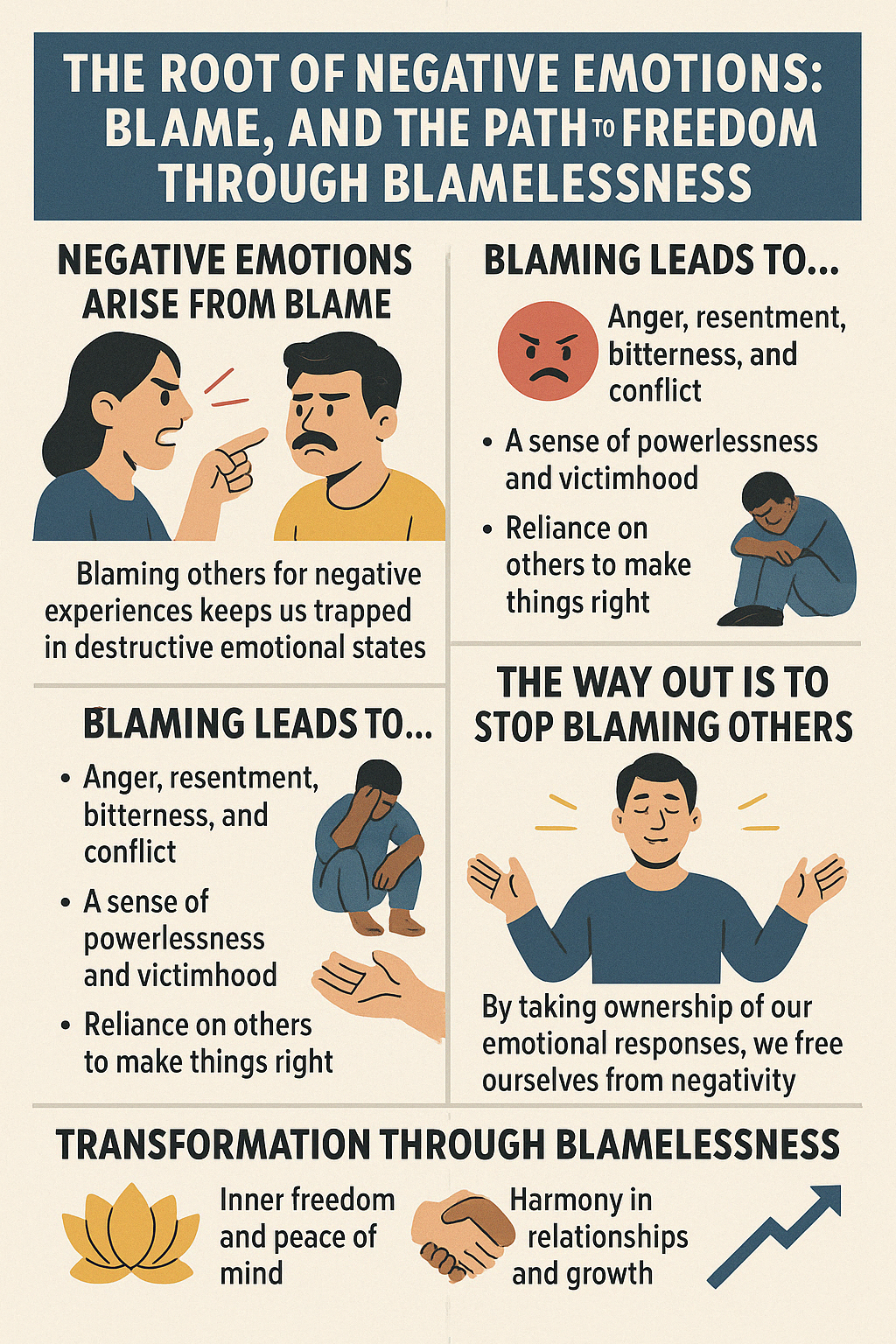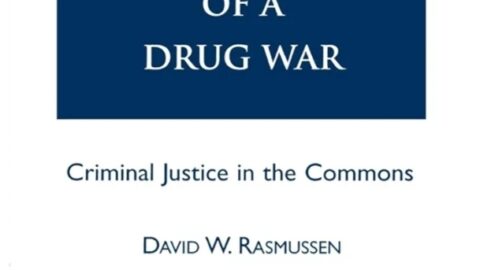The Trunk of the Tree: Blame
At the core of nearly all negative emotions lies one toxic root: blame. Blame is the mental and emotional habit of attributing fault to others for how we feel, what we experience, or what goes wrong in life. This psychological mechanism functions like the trunk of a tree—if you want to eliminate the entire tree of resentment, anger, bitterness, and anxiety, you have to cut it at the trunk.
Blame falsely externalizes the source of our suffering. It assumes that the traffic jam, the rude comment, the delay, or someone else’s mistake causes us to feel upset, offended, or frustrated. But in truth, negative emotions come from inside. They are our responses, not objective realities.
Freedom of Emotional Choice
The empowering truth is this: we always choose how to respond emotionally. Two people can face the same external trigger and have completely different emotional reactions. One becomes enraged. The other remains calm. The difference isn’t in the situation—it’s in their internal response.
The power to choose our emotions gives us freedom. It shifts the responsibility away from external conditions or people and places it squarely on our own shoulders. This is not a burden, but a gift—because it means we have the power to change how we feel by choosing to think and interpret differently.
By removing blame from our internal operating system, we dismantle the very structure that negative emotions rely upon to exist.
The Solution: A Blameless Culture
One of the most practical, real-world applications of eliminating blame is seen in the concept of “blameless postmortems”—an approach borrowed from systems design and operations, but universally applicable to relationships, teams, and families.
What is a Blameless Postmortem?
A blameless postmortem is a structured reflection after a failure or issue where the goal is learning and improvement, not punishment. The underlying assumption is that everyone involved acted in good faith with the best information they had at the time.
Rather than asking:
- “Who messed up?”
- “Why did you do that?”
We ask:
- “What happened?”
- “What were the systemic gaps or blind spots?”
- “How can we improve the process?”
This shift from individual fault-finding to collective understanding builds a culture of safety, trust, and continuous improvement.
Why Blamelessness Matters
Fosters Learning and Growth
When people don’t fear being blamed, they are far more likely to share insights and lessons learned. This leads to deeper understanding and real improvement, rather than cover-ups and silence.
Builds Trust and Psychological Safety
In homes, schools, churches, and workplaces, people thrive when they feel safe. Blamelessness allows for honest communication and problem-solving without the fear of judgment.
Strengthens Relationships
Whether between parents and children, leaders and teams, or spouses, moving from blame to blamelessness enhances empathy, collaboration, and healing.
Promotes Resilience
A blame-centered mindset is rigid and reactive. A blameless mindset is adaptive and forward-focused. Resilient people and communities learn from mistakes instead of being defined by them.
From Blame to Honor
In a principle-centered life, honor replaces blame. The honorable man or woman recognizes personal accountability, chooses integrity in their emotional responses, and pursues wisdom over reaction.
Just as strong individuals take responsibility for their emotions and actions, so too do strong societies. When we move away from finger-pointing and toward reflection, from accusations to adjustments, we become builders of legacy, not just reactors to life.
Conclusion: Cut the Tree at the Trunk
If you want to be free from chronic frustration, judgment, and resentment—cut down the trunk of the tree: stop blaming. Adopt a mindset of self-responsibility and blameless reflection. Whether you’re leading a team, parenting a child, or simply working on your own self-mastery, this shift will create profound transformation.
In your inner life and in your relationships, make this the rule:
“No blame. Just learning.”
And in doing so, you’ll find that peace, growth, and strength naturally follow.






